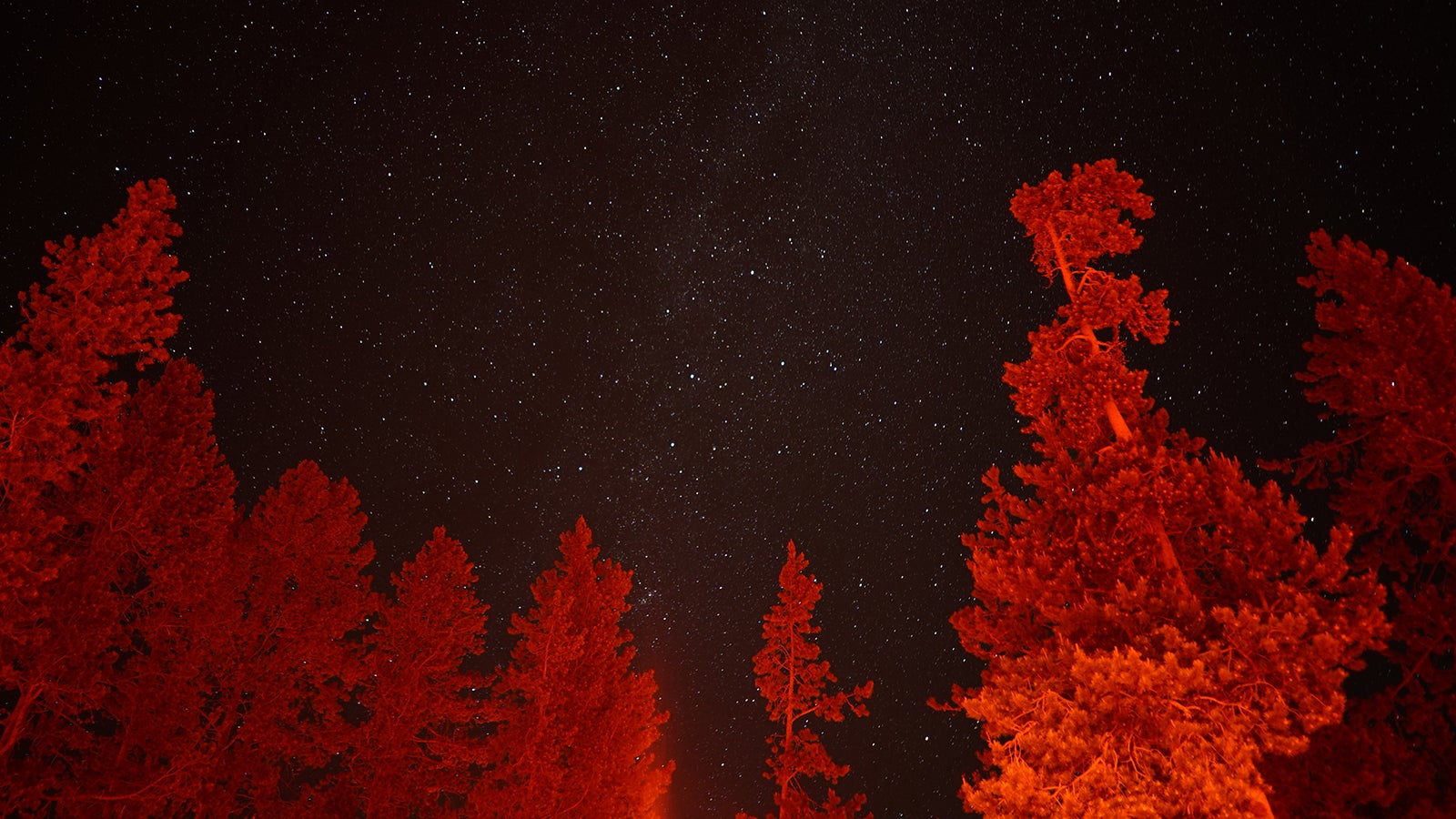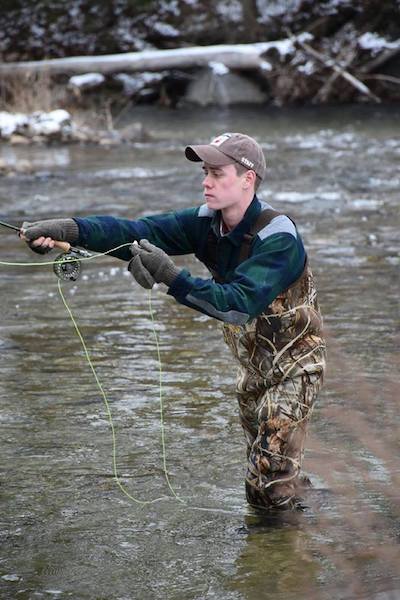
Hunter Cole, a graduate student pursuing a master’s degree in biology, received an Evison Fellowship for scientific and conservation-related research in the Greater Yellowstone Ecosystem. His field research is taking place near Colter Bay Village in Grand Teton National Park. It will help park managers better understand the harmful effects of artificial light on ecologically important populations of bats and insects, and look for possible solutions, including changing outdoor lights to red LEDs.
“Insects are attracted to white light because of its high quantities of short-wavelength light (cooler colors). By eliminating or severely limiting the amount of short-wavelength light a fixture produces, one also limits the amount of light emitted that insects can see and are attracted to. The amber-colored lights folks use to keep insects from being attracted to their lights capitalize on this, however the red LEDs used in our research have nearly no short-wavelength light, and we suspect this will lead to more natural insect habitat use,” said Cole.

Cole began his research career in 2016 as a technician and national park service bat intern during the first year of this project in Grand Teton.
“There is nothing I care about more than the conservation of wild places, and the flora and fauna that inhabit them,” Cole said. “By working in a highly visited portion of one of the most popular national parks in the country, I will be able to talk with folks from around the world about the ecological effects of light pollution, what we are doing to learn more about light pollution’s impact on the landscape, and why one ought to care about the protection of dark skies and ecological communities.”
Cole grew up in Rutland, Vermont, and attended Middlebury College. He is the first student from Boise State to receive the fellowship. His research is related to his work on campus with Dr. Jesse Barber, an associate professor in the Department of Biological Sciences. Cole sees this project as a perfect intersection between science and outreach.
“An idea pertaining to conservation that I keep in the front of my mind every day is: ‘teach people to love something and they’ll want to protect it,’” said Cole.
Cole’s deep love for conservation and wildlife stems from hunting with his father, and he challenges the belief that hunters hunt out of animosity. In his words, “the truth is quite the opposite.”
“Hunting has led me to climb into the boughs of pines and stand on limbs of questionable strength with pins and needles in my feet for hours to watch deer emerge from the timberline and into a hay field before dark without a bow or rifle in hand. I’ve stood motionless on windy October slopes to observe elk behaving as though no one was watching. I’ve followed black bear tracks through the snow just to know where it had been. Living life in a world in which every sight, sound and smell matters breeds a deep respect for, and interest in, the things that live there.”
The Grand Teton Association awarded the first Evison Fellow-ship in 2005. It was named for Boyd Evison, who retired in 1994 after a 42-year career with the National Park Service.